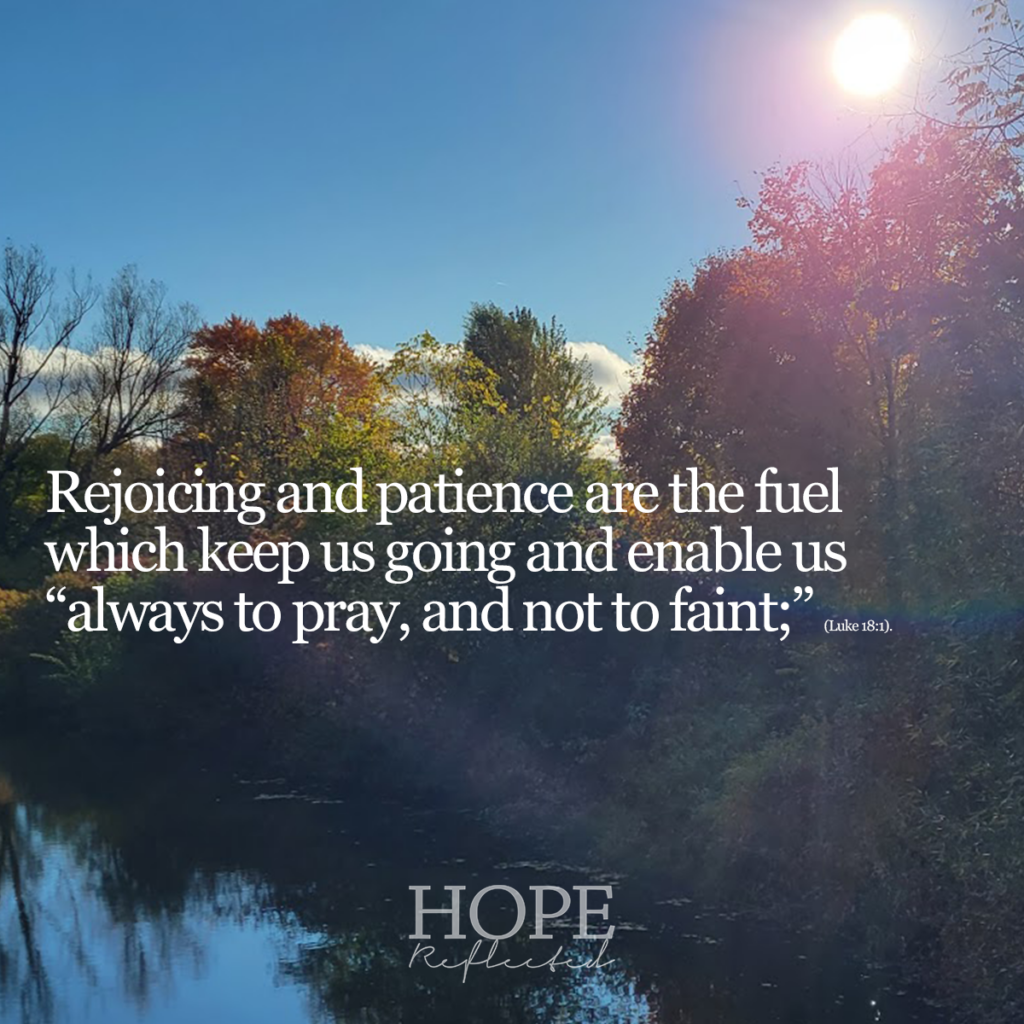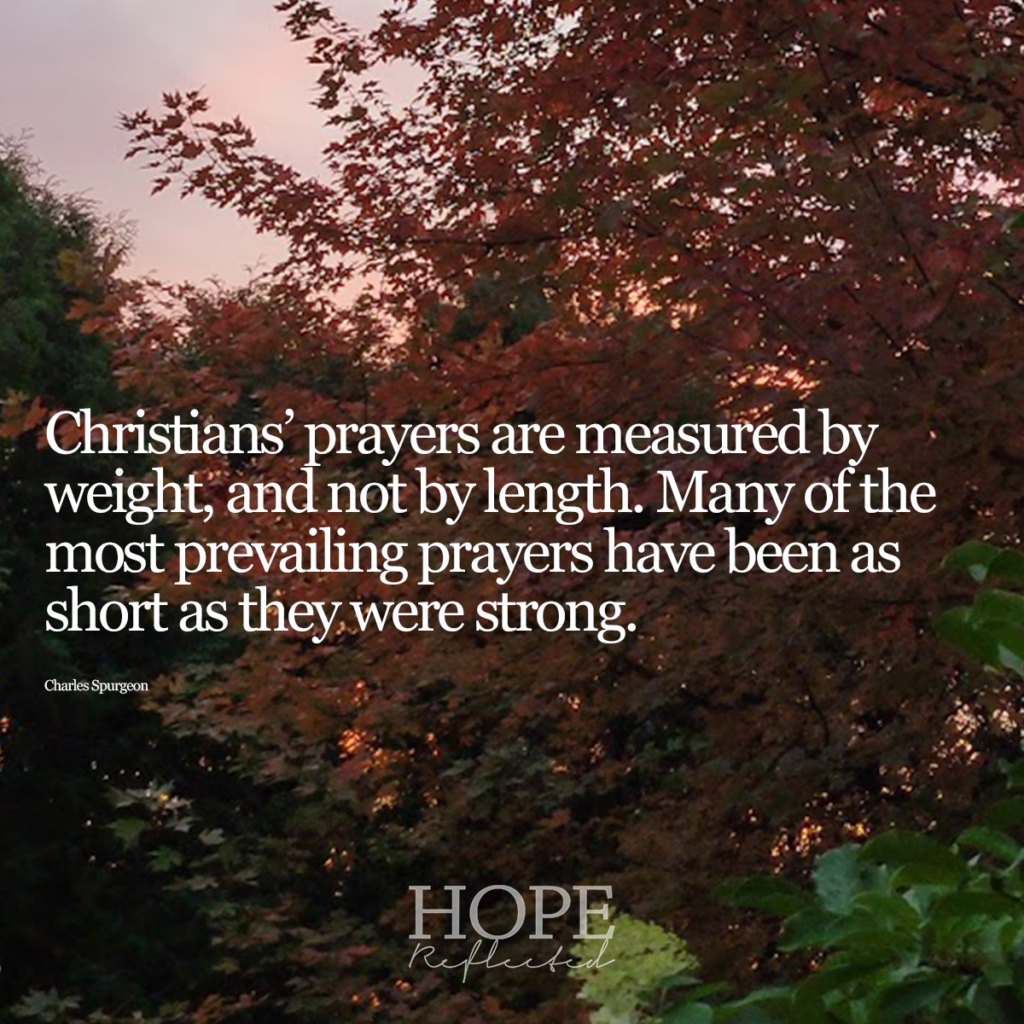Characteristics of prayer
Written by H, Posted in Christian Living, Published Work
Follow up to Vain repetitions and Persistence in prayer

At the beginning of 2022, I finished reading the Puritan classic Importunity: Refusing to Give Up in Prayer by Christopher Love. Luke 11:8 is inscribed at the beginning of each chapter: “I say unto you, Though he will not rise and give him, because he is his friend, yet because of his importunity he will rise and give him as many as he needeth.”
I’ve often wondered about the meaning of this parable Jesus shared in Luke 11—of the man who goes to borrow a loaf of bread in the middle of the night from his neighbour, and refuses to stop knocking at the door until the neighbour finally gets up and gives him bread—and Love’s Importunity explains it neatly.
Similar to what Jesus shared in Luke 18:1, the parable in Luke 11 teaches us how we should approach God in prayer. In the opening verse of Luke 11, Jesus’s disciples asked Him, “Lord, teach us to pray…” (v. 1). In response, Jesus shared what we know today as “The Lord’s Prayer”, and He then shared the parable of the neighbour who comes for bread in the middle of the night.
We must come to God
One of the characteristics of prayer is that no matter the time, we must come to God.
The man in this parable comes to his neighbour at midnight (Luke 11:5).
It’s important to remember that when we feel the Lord’s prompting (and yes, sometimes it may be in the middle of the night) we ought to come to God. Charles Spurgeon wrote that “you should pray because you must pray, not because the set time for praying has arrived, but because your heart must cry unto your Lord.”
We must come to God boldly
Another characteristic of prayer that we learn from the parable in Luke 11 is that we are to come to God boldly.
Let’s be honest, if your neighbour came knocking at your door in the middle of the night, and said they wouldn’t stop knocking until you answered the door and gave them some bread, no doubt you’d be annoyed (and tempted not to answer the door).
The man in Luke 11:8 wasn’t concerned about annoying his neighbour, he was incredibly bold in his approach. So we are to be bold in our approach to God. Matthew Henry wrote in his commentary “We prevail with men by importunity because they are displeased with it, but with God because he is pleased with it.”
Make no mistake, God wants us to come to Him boldly.
“Make no mistake, God wants us to come to Him boldly.”
Hope Reflected
We are to be persistent in prayer
Jesus teaches us through the parable in Luke 11 that we are to be persistent in prayer—this is the “importunity” He describes in verse 8, and we are also to pray for what we need.
Christopher Love wrote that the meaning of Romans 12:12 “continuing instant in prayer” “is a phrase borrowed from dogs who are on a hunt and will not cease following the game till they get it…. So you are to hunger after God, and after mercy, and not rest satisfied till God grants the mercy you stand in need of.”






![False friends or counterfeit kindness; whatever you want to call it, the world is filled with people who will say one thing to your face and then another behind your back; people who will woo you in order to get something from you.
It’s sad, but it’s true.
The Bible provides us with examples from Joab to Judas, and yet, we’re surprised when we find ourselves deceived and hurt by someone else.
So what are some of the hallmarks of a true friend?
You can read more about this on hopereflected.com [Link in profile]
.
.
.
#friends #friendship #kindness #counterfeitkindness #hurt #proverbs #truefriends #hopereflected #blog #blogpost](https://www.hopereflected.com/wp-content/plugins/instagram-feed/img/placeholder.png)